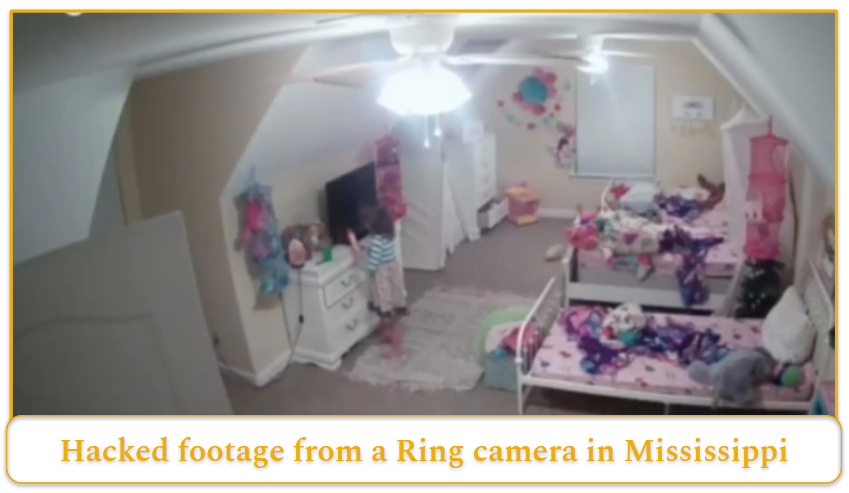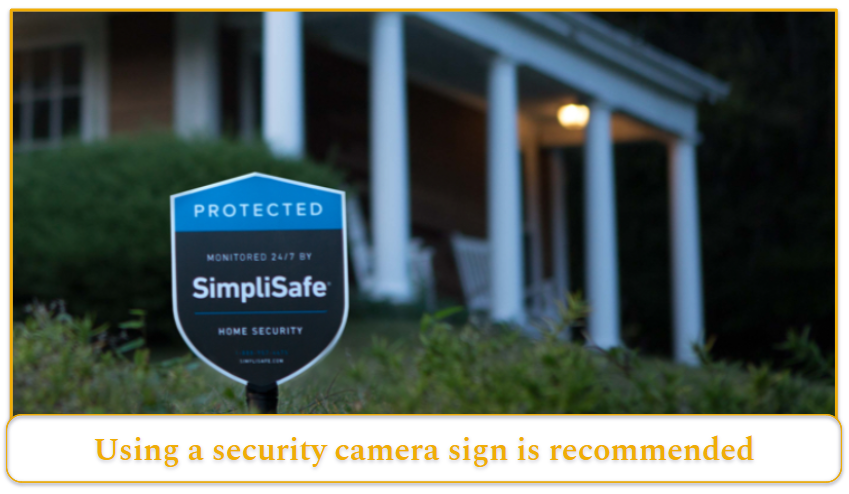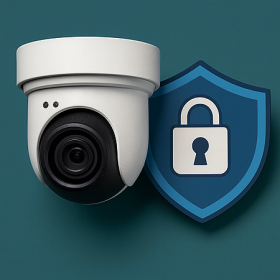Internet-connected surveillance cameras are convenient. They let you monitor your home from anywhere, as long as you have a stable internet connection.
However, one major drawback is their vulnerability to hacking. Unlike traditional CCTV systems, WiFi-enabled cameras are connected to the internet, which makes them a potential target. Even major brands in home security have experienced breaches. So, how can you use these cameras while minimizing the risks?
On this page, you’ll find practical steps to protect your camera data — such as creating strong passwords, enabling multi-factor authentication, and securing your network. While no internet-connected device can be completely hacker-proof, these actions significantly reduce your chances of being targeted.
How to Protect Your Surveillance Camera Data

Surveillance cameras can be hacked in a few different ways.
- Hackers can find out your password and log in through your security camera app, viewing live footage.
- Employees of the security company may be able to access your feed, taking advantage of your professional monitoring service.
- A new study from Northeastern University found that someone can eavesdrop on cameras through a technique called Electromagnetic Eye, EMEye for short, which can capture live video through walls by tapping into the camera’s wires. However, this is only possible with the proper equipment and engineering knowledge.
While there isn’t much you can do about rogue employees or Peeping Toms within your household, using the right cybersecurity measures can make a hacking far less likely. Here’s what I recommend.
Choose a camera with encryption
The best protection starts before you choose a camera. Look for a camera that encrypts your livestream footage and recordings as well as your account information. If you’re viewing your footage online, you can see if a website is encrypted by checking if the URL begins with “https.” If it begins with “http” with no “s,” it’s not encrypted.
Create a strong password
For both your internet router and your home security account, make sure to use a password that’s unique, long, and complicated. That means that it’s not the same password you’ve used for other accounts, as that makes it easier for hackers to access your live feed.
Turn on advanced authentication
Aside from creating a strong password, turn on two- or multi-factor authentication. Two-factor authentication means that you’ll have to enter a passcode sent to either your phone or email inbox, and multi-factor authentication includes biometrics like face or finger identification. Although advanced authentication makes it take a bit longer to log into your security app or account, it makes it much harder for hackers to access your feed, too.
Perform software updates
Software updates can strengthen your cybersecurity and fix any bugs, so make sure to perform them as soon as they’re available.
Turn on your firewall
If your camera or router has a firewall option, turn it on. Firewalls are essentially guards for your network, preventing unauthorized users from gaining access and protecting against malware.
Surveillance Camera Usage Principles

Hackers aren’t the only privacy concern when it comes to surveillance cameras. You want to make sure you’re not invading the privacy of whoever is in your home by installing cameras where they shouldn’t be.
Additionally, if you’re using outdoor cameras, you want to make sure you’re not invading the privacy of your neighbors. Although camera recording laws differ by state, here are some best practices that apply to anyone in the U.S.
Don’t place cameras in bedrooms or bathrooms
This sounds obvious, but there are some places where people have a clear expectation of privacy. While it’s okay to have cameras inside your home, it’s best to place them in areas like a main hallway or living room.
Check your state’s laws
While some states allow the recording of someone without their knowledge, called one-party consent, other states require all parties to consent. Additionally, some states have laws about security cameras specifically and where they’re allowed. Familiarize yourself with your state’s laws before you install your cameras and have them record footage.
Avoid your neighbors’ property
With outdoor cameras, try to point them in a direction so that the footage does not include your neighbors’ property. This may not be entirely possible, especially with video doorbell cameras, but never point a camera directly into a neighbor’s window.
It’s not necessary to have a security sign to alert people of cameras, but I’d recommend it anyway, as the presence of a security sign can deter criminals. Also keep in mind that you may be required to hand over your footage if the police request it in the investigation of a crime. With that in mind, only record areas you’d be comfortable with complete strangers seeing.
FAQ
Are surveillance cameras an invasion of privacy
What should I do if my security camera is hacked
If your security camera is hacked:
- Turn off your camera.
- Change your password.
- Set up two- or multi-factor authentication, if it’s not already on.
- Delete any unauthorized users from your account.
- Perform any available software update.
- Turn on encryption and a firewall before powering your cameras back on.
What are the privacy issues with surveillance cameras
The privacy issues with surveillance cameras are:
- If they’re connected to the internet, they are hackable.
- They could be in private areas like bedrooms or bathrooms.
- Someone may be able to access your live feeds by figuring out your password.
- A lack of encryption or firewall makes it easier for hackers to access live feeds.


